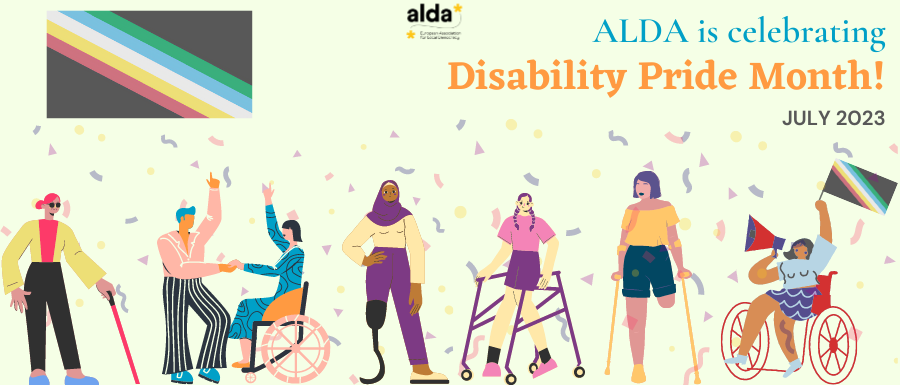July is Disability Pride Month! During this month, we focus on persons with disabilities to foster their empowerment and ensure they are seen and included in building broader equality.
According to the Fact Sheet on Disability by the World Health Organization, persons with disabilities represent the world’s biggest minority, making up around 16% of the global population. It should be added that, from an intersectional perspective, disability is often combined with other factors, like gender, sexual orientation, age, ethnicity and economic status, that can result in multiple forms of inequality.
Research by SDG Watch Europe shows that many European countries still lack legislation aimed at protecting persons with disabilities from discrimination. Even worse, according to the European Disability Forum, some of these countries uphold laws which actively discriminate against them, like those enforcing sterilisation on persons with disabilities.
Certain paternalistic beliefs deem persons with disabilities as completely incapable of taking care of themselves, or of at least participating in decisions that concern them. A similar ableist world-view designs society only for bodies without disabilities, effectively disabling other bodies by turning their impairments into actual barriers to social inclusions and preventing them from fully fitting.
Rather, the Disability Pride movement constitutes itself with the different needs of different bodies in focus, in order to empower them. For example, its official flag has recently been redesigned with limited strobe effects and brightness, making it more accessible to people with colour blindness and to those with visually triggered disabilities.
ALDA aims for the change of discriminatory policies, behaviours and beliefs from an intersectional point of view
Inclusiveness is one of the values at the core of ALDA’s Gender Equality & Anti-Discrimination Policy, which contrasts bias and prejudices toward persons with disabilities of all kinds.
Micro Glossary:
Ableism: A form of discrimination against persons with disabilities. It is often inscribed in policies, behaviours, rules, etc., that are centred around bodies without disabilities, resulting in the exclusion of bodies with different needs
Intersectionality: It refers to how certain social categories or characteristics – such as ethnicity, race, gender, sexual orientation, age, economic status, (dis)ability – can be interconnected and overlapping. Intersectionality often sheds light on how people belonging to more than one category can experience multiple types of discrimination
Persons with disabilities: Someone who has some form of impairment which, in an ableist culture and society, makes them face additional struggles or barriers. Many prefer it to “disabled people”, so that the person is emphasised, rather than the disability. “Persons” and “disabilities” also refer to the wide range of individualities and impairments, which do not constitute a homogenous group or condition
